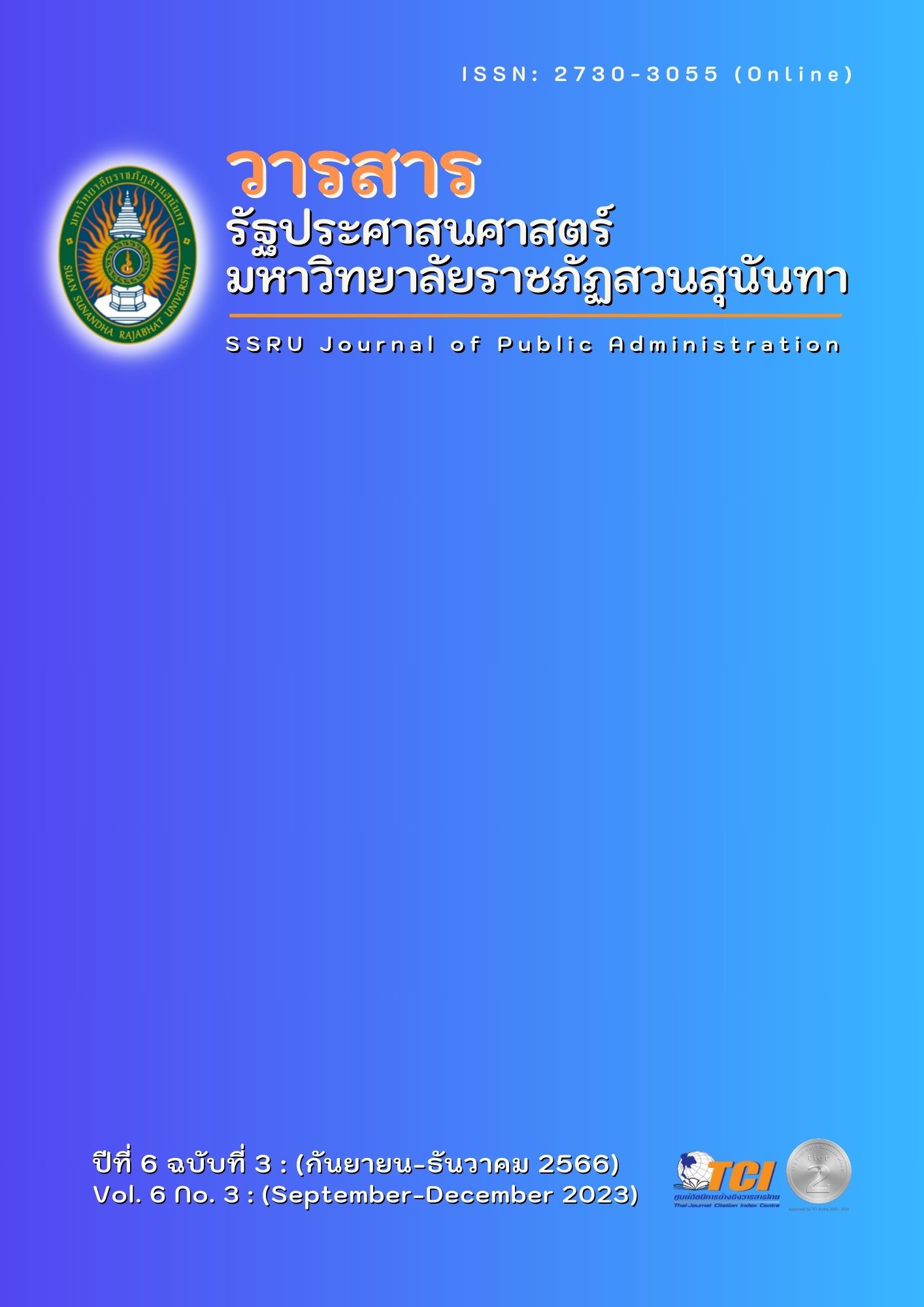หลักนิติธรรมกับการมีส่วนร่วมของประชาชนในกระบวนการร่างกฎหมาย
Main Article Content
บทคัดย่อ
Studying the rule of law and public participation in the lawmaking process under a democratic regime with the King as Head of State is essential in setting the framework of all types of laws that affect the enforcement of people within the country and promote genuine public participation. The objectives of this study are to 1) study the definition, meaning, and origin of the words "Rule of law" and "Rule of legal state" and 2) Study the relationship between the rule of law and the principles of human rights. Principles of good governance and democratic processes and public participation, and 3) Study problems and guidelines for promoting public participation in the legislative process according to the rule of law using a study method in the form of Document Research in which the researcher studies and researches information, especially information that is documents or text. I have written an Analysis and synthesis of knowledge from various documents and found that direct political participation of citizens by proposing laws has problems and obstacles during the process of submitting laws according to the Act on Proposing Laws B.E. 2013 and the problems and obstacles in the consideration process that are caused by both the executive and legislative branches playing a high role in the Thai legislative process. In the process of proposing laws by the people, it is seen that relevant laws can be amended to push the process forward. Bills with citizens' signatures can effectively push through legislation. Solving any problem must be based on the correct conceptual framework regarding the rule of law, the rule of legal state, human rights principles, and good governance. It proposes a solution in two dimensions: the first short-term dimension is legal amendments and new laws, and the long-term second dimension is to promote public participation in the legislative process by strengthening citizens.
Article Details

อนุญาตภายใต้เงื่อนไข Creative Commons Attribution-NonCommercial 4.0 International License.
เอกสารอ้างอิง
Auncharoen, S. (2000). Use of administrative power and democratic development: Study of specific cases of use administrative power of the government [Master's Thesis]. Ramkhamhaeng University.
Burikun, T. et al. (2002). Study project to develop an index to measure the results of the development of a good management system. Nonthaburi: King Prajadhipok's Institute.
Kraiwichian, T. (2011). Rule of law. Parallel Law Journal, 6(1), 1-62.
Mantaporn, W. (2015). The rule of law and sustainable democratic development in Thailand. Lecture on Date: 7 November 2015. From the 17th Academic Conference on the Rule of Law and Democracy at United Nations Conference Center by King Prajadhipok's Institute.
Phakharat, W. (2010). The rule of law and the rule of law. Niti Rath Journal, Niti Tham.
Phonwan, K. (1995). Human rights development. Bangkok: Winyuchon Publishing.
Sawangsak, C. (1995). Basic knowledge of administrative law. Bangkok: Winyuchon.
The Universal Declaration of Human Rights. Retrieved 17 July. 2022, from https://www.krisdika.go.th/ librarian/get?sysid=561157&ext=pdf
Uwanno, B. (2004). Public Law Volume 1 (5th ed.). Bangkok: Winyuchon Publishing House.


